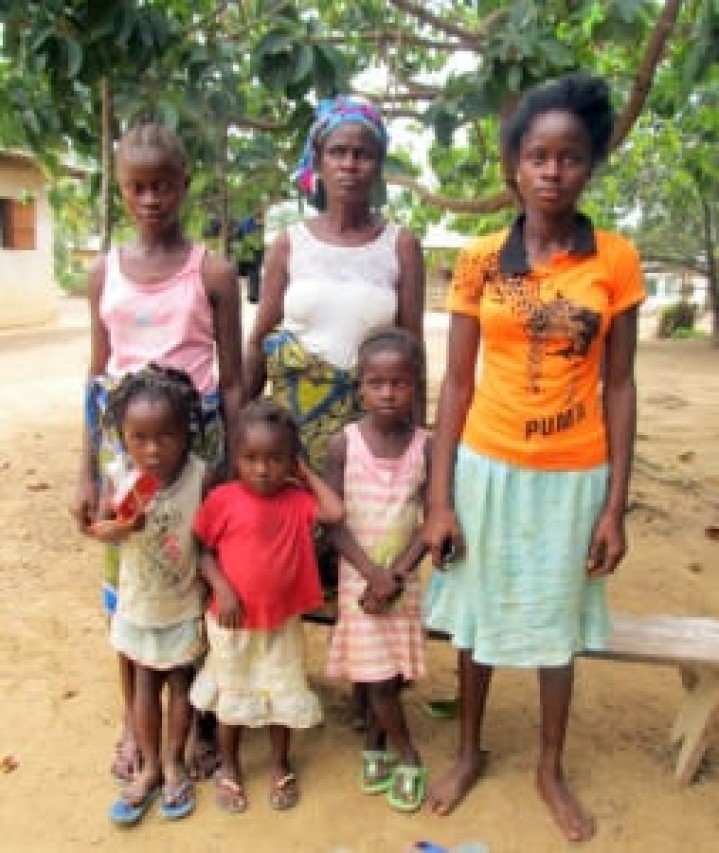Although schools may have re-opened in Liberia following months of closure, for children left orphaned by Ebola, this is largely irrelevant.
Most of these children now live with relatives and the lack of support or financial funds has prevented them from returning to classes this academic year. Family members who have taken in orphaned children, many of whom are single parent or jobless, are often unable to cope with the extra burden that providing for more children brings.
Even though the Liberian government has announced free education for all children attending public schools across the country, buying school books, uniforms and paying for transportation remains a serious impediment.

Ma Vonyee, 72, is a widow and grandmother to eight orphans.
“My only son died of Ebola in Lofa County where he was working. A few days later, his wife and two of their children also died of the same disease. They left behind eight children (all girls). I brought them here to live with me in Nimba County. Now that school is about to reopen, I don’t think I will be able to afford their school needs. To provide food for them is already a big problem for me,” explains Ma Vonyee.
“My fear is that my oldest granddaughter, who is 13, may get distracted by men once she is not going to school. The girl is in the eighth grade and if she falls pregnant at this age it may be the end of her education” she adds.
Ma Vonyee was a petty trader, prior to the Ebola outbreak. She sold dried meat in the market and was quarantined for 26 days after she decided to take in her grandchildren. Since that time, her business has broken down. “This situation is responsible for the suffering I am going through with my grandchildren now,” she says sadly.
The Ebola crisis has not only created thousands of orphans that may not get the opportunity to go back to school, it has also left school age widows who now worry that their future is uncertain and there are no more educational opportunities for them.
Joana, 18, lives with her mother-in-law who provides for her family by selling chilled water. Joana was eight months pregnant when her husband died of the Ebola virus. After been quarantined for more than 30 days, she moved back to her parent’s house, but was rejected by their neighbours.
She had to return to her mother-in-law as she had nowhere else to go. “My husband was working for a mining company and he promised to send me to evening school when I give birth. Since he died, I don’t have any hope of going to the evening school he promised me,” Joana explains.
“I do not even have soap to wash the baby’s diapers. I always have to wait for my mother-in-law to return from selling water, so I am not even thinking about school for now,” she adds.
Several times, Joana has tried to earn some money for herself and her baby. She carries her baby on her back to sell water, but is shunned by community members who refuse to buy from her on grounds that her husband died of the virus. Rejected and feared, Joana hardly leaves the yard of her home now.
The needs of Liberia’s orphans are complex. Illiteracy is already high in the country and if nothing is done, the situation is likely to worsen.
Plan Liberia is supporting the reopening of schools and will be distributing food to students at lunchtime. School food distribution could motivate parents to send their children back to school, and reduce the fear and the resistance from some families.
“We are currently rolling-out the ‘back to school’ programme developed by the government of Liberia and partners, ensuring that prevention and safety measure in school, including the distribution of WASH materials and hand washing facilities, are properly in place before school opens next week,” says Oumarou Koala, Plan Liberia Country Director.